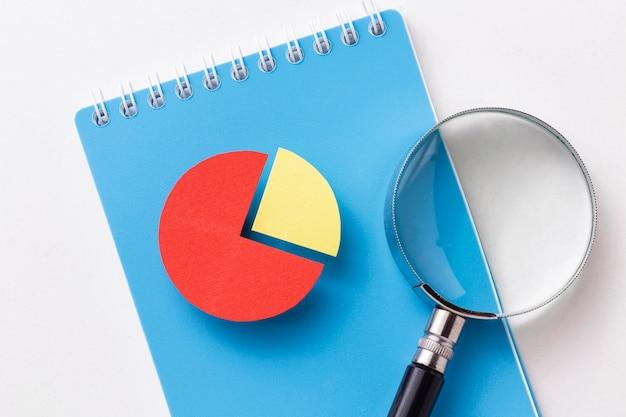Welcome to our blog post on the topic of field notes in qualitative research! If you’re a researcher or a student diving into the world of qualitative research, you’ve probably come across the term “field notes” quite often. But what exactly are they and why are they important to a qualitative research study?
In this post, we’ll explore the role of field notes in qualitative research, their significance, and how to effectively use them in your studies. We’ll answer questions like how to write a research diary, what field notes should include, and how to start a field journal. So whether you’re new to qualitative research or looking to enhance your existing methods, keep reading to gain valuable insights into the world of field notes. Let’s get started!

What Are Field Notes in Qualitative Research?
Field notes in qualitative research serve as the trusty sidekick to the intrepid researcher, like Batman’s trusty utility belt or Sherlock Holmes’ ever-present notepad. These remarkable notes are the written record of the researcher’s observations, thoughts, and interactions while immersing themselves in the field, unraveling the mysteries of human behavior. So, grab your metaphorical cape and let’s dive into the captivating world of field notes!
The Secret Identity: Unobtrusive Record
Field notes, in their essence, are written records taken by researchers during their quest to understand human experiences and behaviors. Like a silent observer at the world’s most fascinating party, the qualitative researcher observes, listens, and hustles to jot down all the juicy details in these notes.
The Sidekick’s Mission: Capture the Essence
Field notes have a noble mission: to capture the essence of the research setting, the people encountered, and the events unfolding before the researcher’s eyes. Imagine these notes as tiny time capsules, preserving every smirk, every hidden gesture, or every conversation like a precious artifact waiting to be analyzed.
The Superpower: Context and Depth
Field notes possess the incredible superpower of providing a rich context and depth to qualitative research. They offer intimate insights into the emotions, actions, and motivations of the participants, shedding light on the intricate web of human interactions that can’t be fully captured through numbers or statistics alone.
The Disguise: Subjectivity and Reflexivity
But, wait! Isn’t our fearless researcher just an ordinary mortal susceptible to biases and perspectives? Absolutely! Field notes embrace subjectivity, acknowledging that the researcher’s lens can influence their observations. These notes become a tool for reflexivity, allowing researchers to reflect on their own beliefs and assumptions, ensuring a transparent and authentic account of the research journey.
The Dynamic Duo: Descriptive and Reflective
Field notes can take on different forms, much like a superhero adapting to the situation at hand. One minute, they may be descriptive, providing a detailed play-by-play of the observed events. The next minute, they become reflective, allowing the researcher to delve into their own thoughts, emotions, and interpretations of what they’ve witnessed.
The Arch-Nemesis: Elusiveness and Challenges
As with any worthy superhero tale, field notes face challenges and foes along the way. The elusive nature of capturing every detail can be frustrating, as the researcher’s memory can betray them at times. Writing in the chaos of the field, deciphering illegible scribbles, or even dealing with unexpected downpours can test even the mightiest researcher’s patience.
The Unveiling: Analysis and Reporting
Once the adventure in the field is complete, and the researcher hangs up their cape, the real work begins. Field notes are the raw material, awaiting analysis and interpretation. Through systematic coding and thematic analysis, these notes shape the narrative of the research, yielding valuable insights that can transform the way society understands and addresses the research topic.
Field notes in qualitative research are far more than just scribbles on a page; they are the embodiment of the researcher’s dedication, curiosity, and pursuit of knowledge. So, let us raise our pens and celebrate the unsung heroes that shape the world of qualitative research, one note at a time!

Field Notes in Qualitative Research: Your Comprehensive FAQ Guide
Welcome to our FAQ-style guide on field notes in qualitative research! We’ve got you covered with all the essential questions and answers you need to know. So grab your pen and get ready to explore this fascinating aspect of qualitative research.
How Important Are Field Notes to a Qualitative Research Study
Field notes are like the unsung heroes of qualitative research. They hold invaluable information that helps researchers make sense of their observations and experiences in the field. These notes provide detailed descriptions, capture nuances, and allow for deeper analysis. Without field notes, researchers risk losing critical insights and compromising the accuracy and reliability of their study.
What Should Field Notes Include
Field notes should be a treasure trove of information that brings your research to life. They should include detailed descriptions of your observations, conversations, surroundings, and any relevant contextual information. Feel free to jot down your thoughts, feelings, and reflections as well. The more detailed and rich your field notes, the more useful they’ll be during your analysis phase.
What Are Field Journals Used For
Field journals are an essential tool for qualitative researchers. They serve as a personal diary of your research journey, capturing your thoughts, reflections, and experiences in the field. Field journals are not just for documenting data but also for capturing your personal insights and emotions. They are a powerful way to immerse yourself in the research process and keep track of your progress.
How Do You Write a Research Diary
Writing a research diary is like having a conversation with yourself. You can start by setting aside regular time to reflect on your research experiences, jotting down key events, observations, and thoughts. Be honest with yourself and let your thoughts flow freely. Remember, your research diary is your personal space, so don’t hold back. It’s also a good practice to date your entries for future reference.
How Do You Keep Field Notes
When it comes to keeping field notes, organization is key. You can use a notebook, a digital software, or even a combination of both. The important thing is to find a method that works for you. Make sure to label and organize your notes in a logical manner so that you can easily find and access them when needed. Remember, field notes are like precious gems, so treat them with care!
How Do You Start a Field Journal
Starting a field journal is an exciting endeavor! Begin by choosing a journal that speaks to you. It could be a beautiful leather-bound notebook or a digital journaling app with customization options. Personalize it to make it your own. Consider adding an inspirational quote or a quirky drawing to the first page. Then, dive right in and let your thoughts spill onto the pages. The adventure awaits!
And there you have it! Our comprehensive FAQ guide on field notes in qualitative research. Now you’re equipped with the knowledge to embark on your research journey with confidence. Remember to embrace the power of field notes, cherish your field journal, and enjoy every step of the qualitative research process.
Happy researching!
Note: This blog post was generated using AI. The content is informative and entertaining, but please keep in mind that it was not written by a human.
